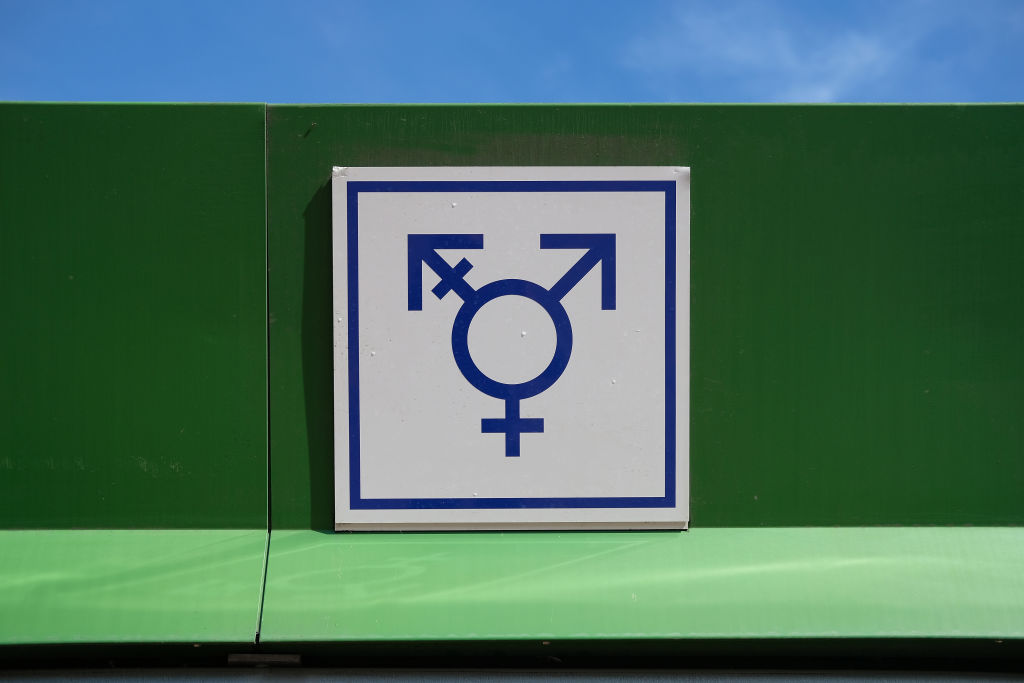The government’s decision to reject ‘self-ID’ is a victory for this transgender woman. When I transitioned eight years ago, I had two ambitions: to keep my job and to stay out of the press. I achieved the first, but failed the second. However, this week’s announcement vindicates my decision to speak out.
Back in 2016, MPs debated a motion that called on the Government to:
- change the Gender Recognition Act 2004 (GRA) in line with the principles of gender self-declaration
- open up the Equality Act to create a new protected characteristic of gender identity.
It sounded as though we were rushing into a world where facts would be replaced by feelings. It might have taken four years but, finally, common sense has prevailed. Liz Truss, the minister for Women and Equalities, said yesterday:
‘It is the government’s view that the balance struck in this legislation is correct, in that there are proper checks and balances in the system and also support for people who want to change their legal sex.’
Campaigners for gender self-ID are furious. Stonewall said the government has ‘fallen far short on its promise to reform the Gender Recognition Act’ declaring that trans people deserve to be respected for ‘who they are’. Yet the ‘de-medicalised’ system for gender recognition they were seeking would have been a mistake. After all, if trans people like me want to be respected for who we really are, it is vital that we can be recognised as gender non-conforming members of our own biological sex, not members of the other one.
Meanwhile, those of us on the other side of the debate to Stonewall – a loose coalition of grass-roots organisations including Woman’s Place UK, Fair Play for Women, Transgender Trend, the LGB Alliance and a few transsexuals – are relieved that the government did not yield to the mob. Our arguments were met with abuse, our livelihoods were threatened, and every attempt was made to silence us. The recent experience of JK Rowling is one that is familiar to many others who have bravely spoken out on this issue.
But this time the underdogs won. The checks and balances cited by Truss that will be required for someone to change their gender underpin the credibility of the process. Without them, it would have been much easier for anyone to change their gender. This could have been an open door to any abusive man who wanted unfettered access to women.
In Britain, transgender rights have never been more secure than they are today. The Equality Act 2010 specifically protects us from discrimination. And my experience of transitioning was made easier by the compassion and kindness shown to me by colleagues and friends. Whatever the government’s critics might say, transgender people are widely accepted in Britain. Attempts by some campaigners to cast us as perpetual victims are unhelpful as well as untrue. We have substantial rights enshrined in domestic law and these are underpinned by the European Convention on Human Rights.
But if we want to maintain trust and confidence we do need to distinguish ‘chosen gender’ from ‘biological sex’. Most activity in society involves both sexes, and we trans people can – and do – relate to others as our chosen gender. However, where there is clear justification to restrict access to one sex – refuges for women fleeing male violence, for example – the key factor is the objective factor: biological sex.
Other transgender campaigners may see that as exclusionary, but I see it as necessary. If we want people to accept us, we need to accept ourselves, and accept ourselves as we are; we certainly don’t change our biological sex when we transition; that is impossible.
For those who do seek to change their gender, the announcement this week is a helpful one. The process is set to be made cheaper and less bureaucratic. Yet my only quibble is the retention of the need to prove that we have lived in our new gender for at least two years, something easier said than defined. In practice, the evidence burden is not onerous: a deed poll or statutory declaration of change of name, along with some utility bills and pay slips to prove that we are actually using the new name. However, without the need for medical treatment, this can all be a charade. We never meet the decision makers so we can’t be cross-examined. Maybe it would have been better to replace it with a period of reflection but, after the furore of the past four years, now is the time to look forwards beyond the row over the GRA.
Because while this week’s announcement is a welcome one, it is a mistake to think this debate is over. The Tory government may have binned self-ID, but it remains on the agenda in Scotland where it is a devolved matter. Meanwhile policy creep across society has been rampant. Businesses and organisations have eagerly, and recklessly, marched ahead in the use of different terms like ‘gender’ and ‘sex’. At its recent annual representative meeting, even the British Medical Association appeared to have bought into this focus on gender over the concept of biological sex.
It’s vital we resist such moves. When I transitioned, I never bothered applying for a Gender Recognition Certificate. Not because it was humiliating, bureaucratic or expensive, but because it was irrelevant. I transitioned to find peace in my own body, not to change society. My legal sex remains male but then I have never felt the need to change the past – the sex on my birth certificate – in order to live in the present.







Comments